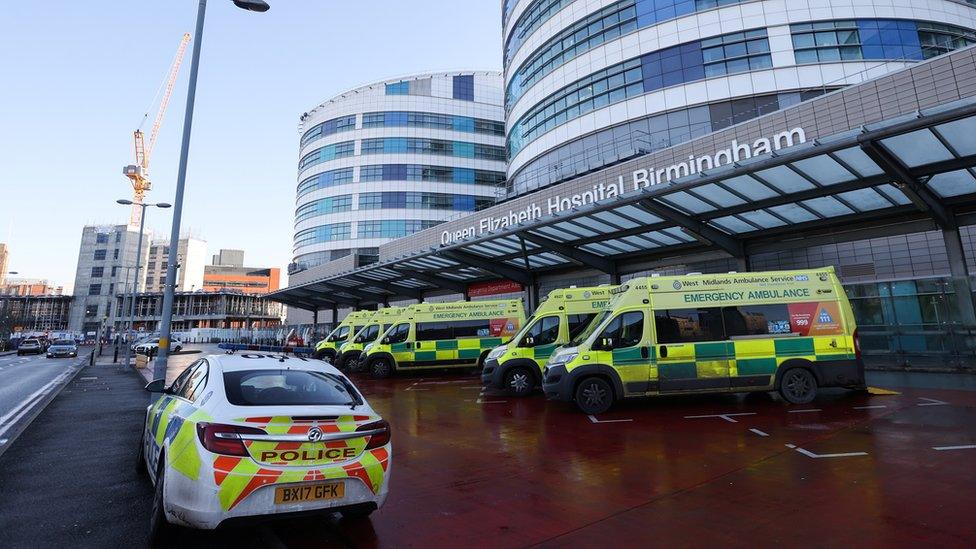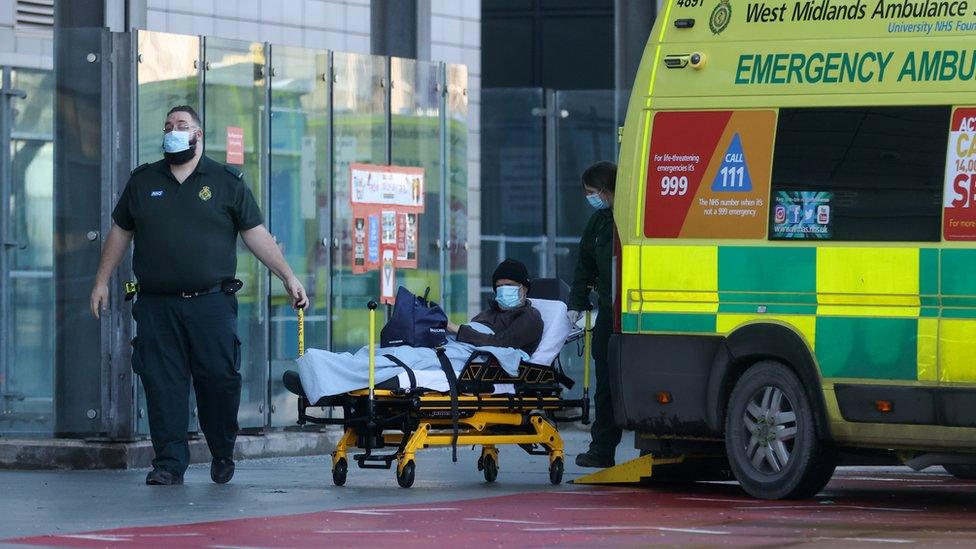Woman who had a three and a half hour wait in an ambulance later died
- Published

West Midlands Ambulance Service said delays were partly caused by an inability to house patients in corridors due to Covid-19
A woman who had a three and a half hour wait in an ambulance outside a hospital in Birmingham later died.
The patient, with chronic breathing difficulties, was suspected by paramedics to have sepsis during the call-out on 24 May.
She was pronounced dead at the Queen Elizabeth Hospital due to Chronic Obstructive Pulmonary Disease (COPD).
The hospital trust said it was doing all it could to reduce ambulance handover delays.
West Midlands Ambulance service said it was facing unprecedented delays outside hospitals which is impacting on patient care.
It said activity was up 15% last month, compared with the same period last year, during the busiest May on record and saw 4,135 hours of ambulance delays.
In its board papers, the ambulance service also highlighted a second death in October of a patient in her 90s, who died at an undisclosed hospital.
The patient had a nose bleed and after 10 minutes, paramedics asked for her to see an Ear Nose and Throat specialist. After 27 minutes, the patient went into respiratory arrest.
'Severe pressure
The second case is currently being investigated by the Healthcare Safety Investigation Branch.
A West Midlands Ambulance Service Spokesman said: "The NHS remains under severe pressure and unfortunately this does mean some of our crews are delayed handing over their patient to the staff in A&E.
"All patients continue to receive clinical care until they are handed over to hospital staff."

West Midlands Ambulance Service said last month marked its busiest May on record
Ambulance delays in the region are worst at University Hospitals Birmingham (UHB), which runs the QE Hospital, as well as in Shropshire and at Worcester.
UHB says it is under pressure because it is seeing 1,300 patients a day.
The ambulance service added: "The pressure on local hospitals also has a knock-on effect on our ability to get to patients in the community which results in patients waiting longer for a response to their 999 call than we would want.
"We are working with all local NHS partners to reduce delays so that our crews can respond to the next incident as quickly as possible."
'Chronic need not met'
Sources at UHB said the woman was suffering from COPD and receiving end-of-life care at home.
In a statement, it said: "Whilst the trust has returned to pre-pandemic levels of A&E activity, we are doing all we can to reduce ambulance handover delays."
The demand is being attributed to chronic need not met during the pandemic, problems with GP services, pressure on beds while trying to catch up on operations and an inability due to Covid-19 to house patients in corridors.
UHB added people should only attend A&E in a life-threatening emergency and should phone 111 first.